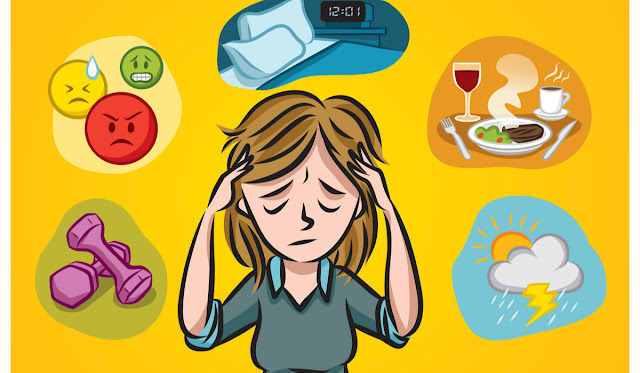What Happens During a Migraine?
 |
| What Happens During a Migraine? |
Despite migraine being a prevalent neurological condition that affects many of us, researchers and experts still struggle to pinpoint what exactly causes a migraine attack. However, we have a lot of information at our disposal on what migraine does to the body.
Today,
we will cover all the phases that the human body goes through during a migraine
attack and share a few tips to mitigate your attack’s severity.
Migraine - Common Triggers
Although
we don’t know what exactly causes a person to get migraines, some elements are
more likely to result in an attack. These include but are not limited to, the
following:
● Stress
● Biological and environmental conditions
● Fatigue
● Changes in sleep pattern
● Weather changes
● Dietary changes
1st Stage - The Onset
A
migraine starts when a trigger causes neurons in the brain to fire abnormally.
As mentioned above, possible triggers are many! Anything from lack of sleep to
a specific diet change can act as a trigger and cause a reaction in your
neurons.
2nd Stage - Hypersensitivity
The
abnormal reaction from the neurons causes some areas of the brain to experience
hyperexcitability, which then affects the senses. Symptoms of this vary from
person to person, but the usual ones include sensitivity to light and sound and
some difficulty with motor skills and speech. In some extreme cases, the person
can experience some visual disturbances as well. These symptoms are indicators
for you to consult your doctor as soon as possible and check if you require
migraine medicine.
3rd Stage - Attack
The
actual head pain you experience during a migraine results from the drop in the
body’s neurotransmitter serotonin levels. A decrease in serotonin levels then
causes the blood vessels around the brain to dilate. This expansion is what
essentially leads to the throbbing that is concentrated on one side of your
head.
4th Stage - The Aftermath
The
usual duration of a migraine attack is anywhere between 4 to 72 hours. However,
even if the attack itself is over, it is not rare for the body to experience
some lingering effects. These would include strained concentration and
weakness.
Migraine Treatment
The important thing is to address a migraine as
soon as you feel it coming on. Adequate stress management and regular exercise
are useful in handling better during and after an attack. In addition, some
over-counter-medication also helps you tackle a migraine attack. Check out Zolmitriptan tablets online UK and Sumatriptan tablets
online UK to promptly access migraine treatment online.



Comments
Post a Comment